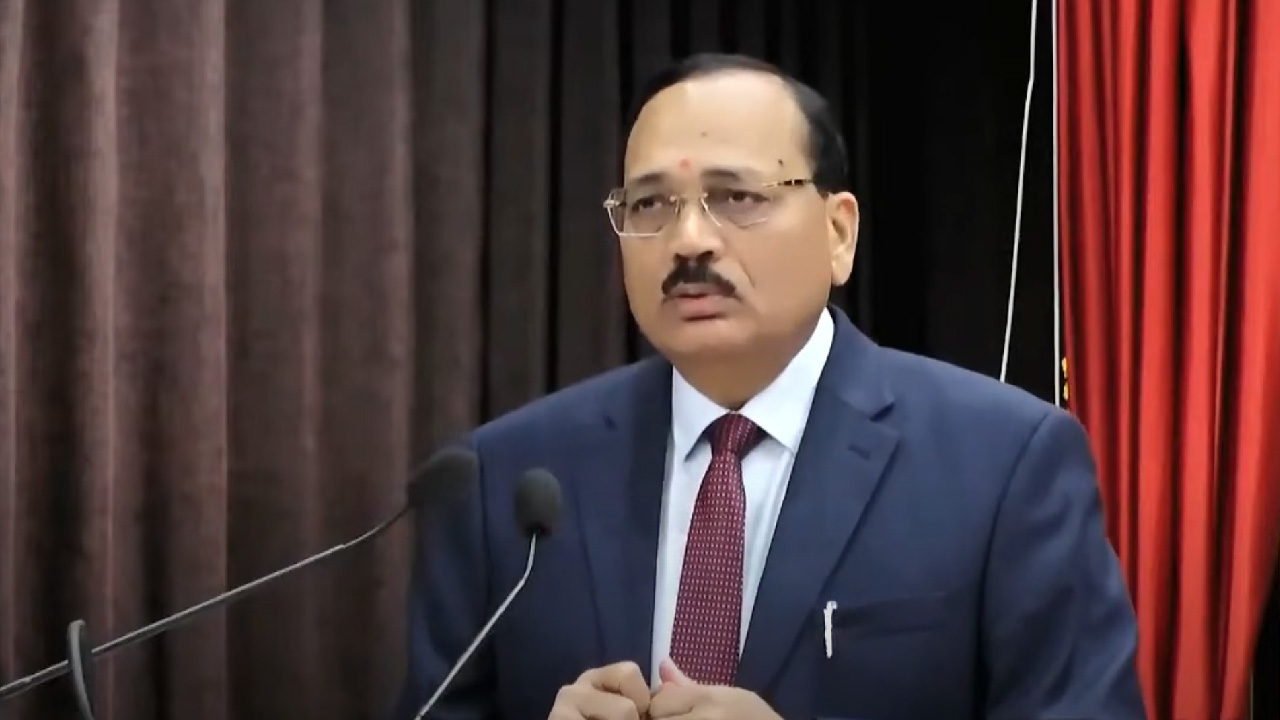Justice Surya Kant, Judge of the Supreme Court, opined that technology can never replace the human element in the justice delivery system as the haert of justice will always remain human.
“While we reimagine legal aid through technology, let us not forget: technology is only a tool. The heart of justice must remain human,” Justice Surya Kant said today while delivering the RC Lahoti Memorial Lecture organised by the School of Law, Manav Rachna University.
Justice Kant, speaking on ‘Bridging The Gap: Reimagining Legal Aid In The Digital Age For Inclusive Justice In India,’ said that legal aid cannot become a factory of canned responses, and it must not reduce people’s problems to ticket numbers in the digital era. It must remain a human act.
“Above all, empathy must remain central. Automated systems are efficient, but they cannot replace the human touch. Legal aid cannot become a factory of canned responses; it must not reduce people’s problems to ticket numbers. There must always be a human fallback—someone to listen, explain, and reassure. Justice must still listen.”
While Justice Kant shared some instances where legal aid through digital means, such as artificial intelligence, has made a difference even in the remotest parts of India, he highlighted the reality of the digital divide through technological inequalities existing in India.
He referred to instances in the remote villages of Assam where paralegal workers are now using mobiles to record testimonials of domestic violence, and connect survivors to pro bono counsel in real time. During the pandemic, virtual Lok Adalats in Maharashtra disposed of thousands of cases, helping workers recover unpaid wages without stepping outside their homes. In Tamil Nadu, legal aid chatbots have been deployed to answer questions on land rights and tenancy. In Rajasthan, tele-counselling lines answered by volunteer lawyers have offered not just legal advice but also emotional support to widows and disaster survivors.
While referring to these as “beacon lighting the future road map,” Justice Kant said that the task does not end with creating a digital solution, but to ensure that these solutions are “inclusive”. Firstly, he highlighted how “digital legal aid cannot succeed if citizens are unfamiliar with basic technology”.
Justice Kant suggested that this is the right time for all stakeholders, including educational institutions, should launch mass campaigns on digital literacy-prioritising women, senior citizens, persons with disabilities and rural youth.
Secondly, Justice Kant pointed out that another non-negotiable aspect of the digital legal aid program is confidentiality and security.
He said: “No technology is neutral. The tools we build reflect the values we embed in them. As we digitise legal aid, we must design systems with built-in ethics. Privacy must be paramount; all platforms handling sensitive legal data must comply with rigorous data protection standards. Accessibility must not be compromised —digital legal aid platforms must be built to serve persons with disabilities, those who use screen readers, and the digitally less literate.”
Justice Kant also flagged that these digital mechanisms should be accompanied by ethics and accountability and that artificial intelligence algorithms must be designed to flag, not exacerbate, the biases so entrenched in society.
“At every touchpoint in this digital ecosystem—whether it is a lawyer responding to a distressed call, a judge presiding over a video-enabled hearing, or even a chatbot answering a query—the culture of empathy, patience, and respect must be paramount. Technology, while powerful, cannot replicate the human element at the heart of legal aid…In a world where machines write poetry and algorithms predict behaviour, we must remember: justice is still a human act. It is not rendered by bandwidth but by conscience. The greatness of the law lies not in authority, but in service; not in rigidity, but in compassion.”
Justice Kant also reminded that inclusive digital justice is only possible if we engage in strategic collaboration with legal-tech startups, social enterprises engaged in developing AI-powered legal research tools, voice-to-text transcription technology, etc. Along with this, law schools must be ‘vibrant laboratories’ where, through legal-aid clinics and real-time experimentation, students can design, build, and test pioneering digital tools while making a direct impact on their communities.
“Let us look to a future where every Panchayat across the nation enjoys seamless digital access to legal assistance; where every woman, regardless of circumstance or location, feels the assurance of her rights through the power of a simple phone call; where no prisoner is denied a prompt hearing; and where every citizen, from the cities to the remotest villages, is empowered to understand and speak the language of the law. This vision is not an unattainable utopia. With collective resolve, clear purpose, and strong partnerships, we can transform it into India’s living reality.”
The event was also attended by Justice UU Lalit, former Chief Justice of India.





